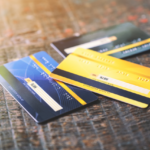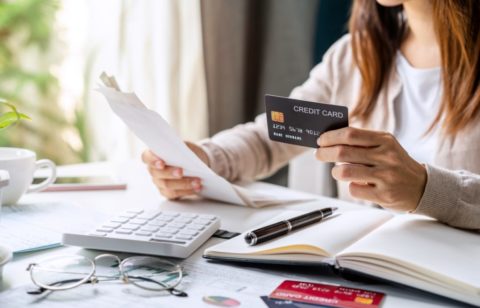44% of Gen Zers don’t know their credit scores, and 25% have no idea how to find it. But this is information everyone needs to know, especially since 40% of Americans say credit scores have prevented them from qualifying for some kind of financial product. While they can make it easier to secure loans, there are a lot of unknowns around this very important topic.
How often should I check my credit score?
Since your credit score can be updated as often as once a month, your previous score can quickly become outdated. That’s why it’s recommended that you check your score at least once a year, at a minimum. Through the end of 2023 you can get a weekly credit report for free from the three major credit bureaus (Equifax, Experian, and Transunion). You can also find free scores at annualcreditreport.com and Creditkarma.com.
What impacts a credit score?
The three main credit bureaus calculate a Fico score using several factors. The basics are outlined below:
- 35% Payment history
- 30% Amounts owed
- 15% Length of credit history
- 10% Credit Mix
- 10% New Credit
Other factors taken into consideration include bankruptcies, tax liens, and court judgments.
People Also Read
What are credit score ranges?
Credit scores are broken down into several ranges from poor to excellent. They might vary a bit from website to website, but you can use them for general informational purposes.
Poor: 300-579: If your score is in this range, you could have a hard time getting approved for new credit.
Fair: 580-669: If your score is in this range, you might be considered “subprime” and higher risk. If you are approved for a loan, it will be at a higher interest rate.
Good: 670-739: If your score is in this range, you are generally viewed as lower risk and will qualify for a loan at a better interest rate.
Very Good: 740-799: If your score is in this range, you have a proven track record of good credit behavior and will likely have an easier time getting approved for new/additional credit.
Excellent: 800-850: If your score is in this range, you are most likely considered a low-risk borrower and will qualify for the best interest rates and terms.
Good credit leads to higher scores, which in turn lowers your cost to borrow. Living within your means and paying bills on time can help improve your credit score, reduce the interest rate, and enable you to put more money toward saving.
What is the average credit score?
Credit scores have been rising over the last several years. According to FICO the current average FICO score in the US is 716. That means the average FICO score sits firmly in the “Good” range.
Scores also range across states and ages. Check out this chart from Investopedia to see the average credit scores across states and how much they have risen from 2020 to 2021.
How to improve your credit score?
Disclaimer: The suggestions here are for general information purposes only and are not a complete list. If you are looking to improve your credit score, please consult a professional to review your specific situation.
To improve your credit, you can work on one or all the factors that go into your score or look at enrolling in a program like Experian Boost.
According to Experian, these five steps can help you improve your score:
1. Build your credit file
When you open a new account, it will be reported to the major credit bureaus and help build your credit report. Having a few open and active credit accounts will work in your favor as long as you make on-time payments.
TIP:
Switching credit cards or opening a new one can have certain perks. For example, you could rack up travel rewards miles or pay a lower interest rate.
2. Don’t miss payments
Since payment history plays an integral role in determining your credit scores, having a long history of on-time payments can help you achieve excellent credit scores. Make sure you don’t miss loan or credit card payments by more than 29 days. By law, a late payment cannot be reported until it is 30 days past due. Paying 30 days or later could drop your score as much as 100 points!
TIP:
Autopay’s automated process helps ensure your bills are paid regularly and on time
3. Get caught up on missed or behind payments
While a late payment can remain on your credit report for up to seven years, having all your accounts in good standing can help your scores. It will also save you money by eliminating late fees and additional interest.
TIP:
One of the first steps to catch up on bills is knowing exactly how much you owe each lender.
4. Pay down revolving account balances
Revolving debt refers to credit that you can continuously draw on as long as your accounts are open, and you haven’t hit your limit. Examples include credit cards and lines of credit. Having a high balance on revolving credit accounts can hurt your scores while maintaining a low balance relative to their credit limits can help improve them.
TIP: A rule of thumb to protect your score is not using more than 30% of your available credit.
5. Limit how often you apply for new accounts
According to myFico, opening many new accounts can lower your average account age—which could hurt your score. New credit inquiries can stay on your report for two years, but their impact is usually small, and this enables you to shop for the best rate.
TIP:
It’s important to pull your credit reports at least once a year at minimum. But to ensure you haven’t been a victim of identity theft or to catch errors, you can check more often such as every three months.
How to fix your credit report
A report issued by the Federal Trade Commission (FTC) revealed that about 20% of us have severe errors in our credit reports that are damaging our credit. If you do find errors, you are entitled to dispute them. All three of the credit bureaus have forms on their websites for this purpose. You can write a letter disputing the item(s) along with whatever documentation you have to support your claim.
When the credit bureau receives your letter and documentation it must forward everything to the institution that provided the information you’re challenging. The institution then has 30 days to verify the item. If it doesn’t respond within that timeframe or can’t verify the item, it must be removed from all your credit reports.
If you’re struggling to pay off unsecured debt and your credit score is suffering, you might want to consider enrolling in a debt relief program. It can help you pay off your balances for less than you owe, and in a shorter amount of time.









